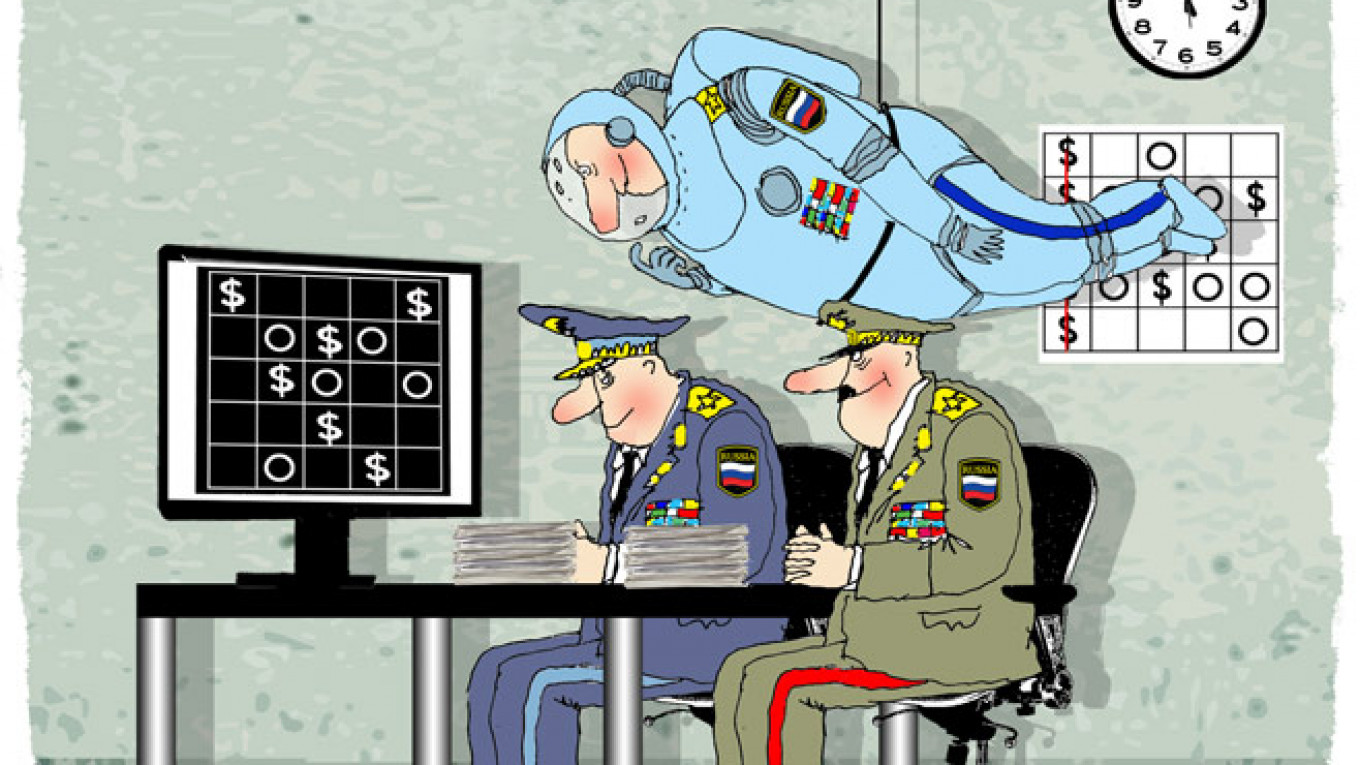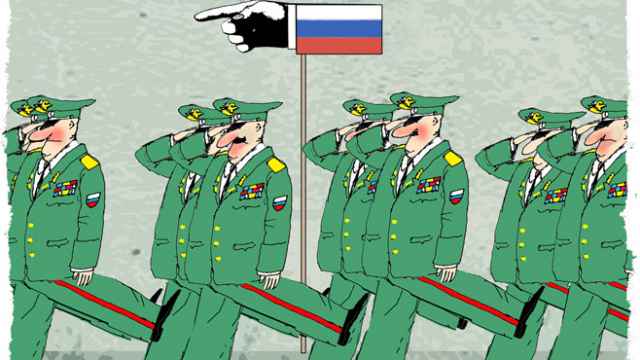An extremely significant milestone in the history of the Russian armed forces has surprisingly passed almost without notice. Defense Minister Sergei Shoigu recently announced that a new branch of the military was now ready for combat duty: the Aerospace Forces. The air force has been combined with the space forces.
The defense minister explained that, first, this allows the ministry to put in "one set of hands" all the responsibility for the formation of military and technical policy for the development of forces acting in the aerospace sphere; second, these forces will be used more effectively due to this close integration; third, it will ensure the progressive development of the country's aerospace defenses.
However, he also said that the emergence of a new branch of the military, strange as this may seem, would not lead to any changes in armed forces management: "The current management system for the personnel and materiel of the air and air defense forces will remain the same. General leadership of aerospace defense will be carried out, as before, by the General Staff, with direct leadership from the headquarters of the Aerospace Forces."
This is quite strange: the space forces will remain under the command of the General Staff, but its technical policy, including the many billions of orders for materiel, will be developed by the corresponding management of the Aerospace Defense Forces headquarters.
Several years ago, watching the Russian government attempt to solve serious structural issues through multiple reorganization efforts, I came up with the following law of administrative stupidity. This law states that the more senseless the plan, the greater the likelihood that it will be implemented.
The creation of an Aerospace Defense Forces is a perfect illustration of the universal Law of Golts (forgive my immodesty). The only parties who will reap the rewards of this great victory are several generals who will receive new ranks and positions.
The grand idea for some kind of new aerospace defense was first introduced to national leaders in the mid-2000s. Sergei Ivanov, then minister of defense, gave voice to it in 2006. The logic was simple: any military action from the Americans would start with an aerospace attack.
It must be said that the start of operations in Yugoslavia and Iraq — in which adversaries of the U.S. capitulated after several weeks of air strikes — made a strong impression on the Kremlin. Members of the military proposed countering their aerospace attacks with our aerospace defense, and merging all the personnel and materiel from the air force, Aerospace Defense Forces, and space forces into one mega-system.
There was one tiny problem with all this, which the authors of this fabulous plan preferred not to bring to the attention of their higher-ups.
It's more or less clear what an "aerospace operation" means. During these military actions, spy satellites locate targets and pass them on to fighter planes or even cruise missiles, thereby linking the combat systems acting in space and in the air.
The problem, however, is that repelling such an attack requires action in two different environments, and the systems of space and air defense simply can't be merged. They have fundamentally different radar ranges, and completely different interception capabilities. Enemy craft or weapons in space travel according to the laws of ballistics, and those in the air travel according to the laws of aerodynamics.
The laws of physics, however, are nothing compared to the desire of bureaucrats (members of the military are no exception here) to bring something under their control. And to ask the state for billions of rubles to enact their grandiose plan.
Of course, it was clear from the start to specialists that creating a new branch of the military would be almost entirely ineffective. They remembered, after all, that the air defense force had moved around within the military structure countless times. The space forces has shifted place at least twice in the last 20 years. And all without any practical results.
It was clear to everyone that it was a matter of conflict between several groups of generals: those from the air force, space forces, and Aerospace Defense Forces. As we can see, victory changed hands several times over the last 10 years.
Now we hear the official announcement that "the first duty shift of the Center of Management for a new branch of the armed forces — the Aerospace Forces (VKS) was deployed on Aug. 1 for the aerospace defense of the country and began to provide centralized combat control of the on-duty personnel and materiel of the air force, the anti-missile and anti-aircraft defense, the launch and direction of spacecraft of the Russian orbital grouping, warning systems for missile attacks, and control over the space environment."
According to specialists, this means that they've managed to put, in one building, monitors to which cables from different management systems have been attached: the space forces, the air force, and the Aerospace Defense Forces.
Ideally, all this information will be combined on one screen, on which the nation's top leadership can see the entire "aerospace situation." But any kind of "centralized management" in this case is simply impossible.
Alexander Golts is deputy editor of the online newspaper Yezhednevny Zhurnal.
A Message from The Moscow Times:
Dear readers,
We are facing unprecedented challenges. Russia's Prosecutor General's Office has designated The Moscow Times as an "undesirable" organization, criminalizing our work and putting our staff at risk of prosecution. This follows our earlier unjust labeling as a "foreign agent."
These actions are direct attempts to silence independent journalism in Russia. The authorities claim our work "discredits the decisions of the Russian leadership." We see things differently: we strive to provide accurate, unbiased reporting on Russia.
We, the journalists of The Moscow Times, refuse to be silenced. But to continue our work, we need your help.
Your support, no matter how small, makes a world of difference. If you can, please support us monthly starting from just $2. It's quick to set up, and every contribution makes a significant impact.
By supporting The Moscow Times, you're defending open, independent journalism in the face of repression. Thank you for standing with us.
Remind me later.







